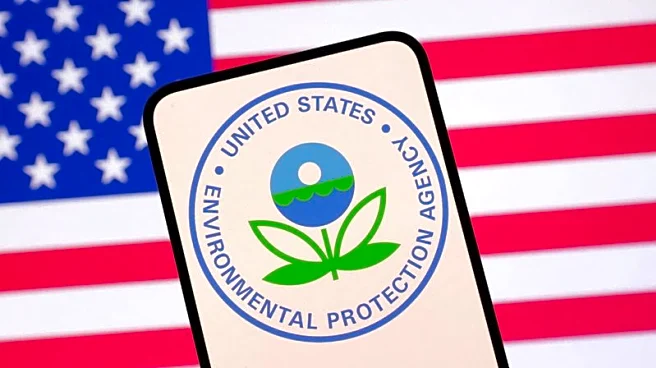What's Happening?
The U.S. government has broadened its approach to critical minerals, emphasizing national security and the need for domestic supply chains. Under President Trump's administration, the definition of critical minerals was expanded to include metals like lithium and antimony, crucial for technologies such as electric vehicles and renewable energy systems. The FAST 41 program, established under the Fixing America’s Surface Transportation Act, aims to streamline federal permitting for infrastructure projects, including mining operations. This program enhances coordination among federal agencies and provides clearer timelines for environmental reviews, benefiting project sponsors by reducing delays and uncertainties. Several mining projects have already been included in the FAST 41 program, reflecting the government's commitment to enhancing domestic production of critical minerals.
Why It's Important?
The expansion of the FAST 41 program is significant for U.S. industries reliant on critical minerals, such as technology, defense, and renewable energy. By reducing dependence on foreign sources, the program supports national security and economic stability. Companies involved in mining operations stand to gain from expedited permitting processes, which can lead to faster project development and increased production capacity. This initiative also signals the strategic importance of domestic mineral supply, potentially attracting investment and fostering innovation in mining technologies. As demand for critical minerals grows, the program is poised to play a crucial role in ensuring a reliable and secure supply for the United States.
What's Next?
The FAST 41 program is expected to continue supporting new mining projects, with several companies already benefiting from its streamlined processes. As the demand for critical minerals increases, more projects may seek inclusion in the program, further enhancing domestic production capabilities. The program's success could lead to additional policy measures aimed at securing mineral supply chains and reducing reliance on foreign sources. Stakeholders, including mining companies and government agencies, will likely continue to collaborate to address challenges such as environmental impact and regulatory compliance, ensuring sustainable development of critical mineral resources.
Beyond the Headlines
The FAST 41 program not only impacts the mining industry but also has broader implications for environmental policy and community engagement. By providing structured timelines for environmental reviews, the program encourages responsible development practices and transparency. This approach can foster trust between mining companies and local communities, potentially reducing opposition to new projects. Additionally, the program's focus on critical minerals highlights the importance of sustainable resource management and the need for innovative solutions to minimize environmental impact. As the program evolves, it may influence broader discussions on balancing economic growth with environmental stewardship.










